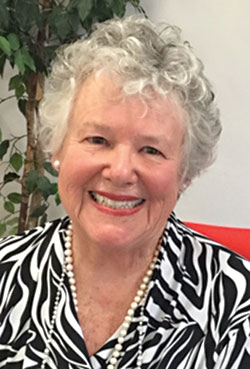Reuniting with Grandfather’s ‘Good Ship Tobermory’ on its 100th birthday

I never knew my grandfather, but family tales of him coming to America from Birmingham, England, with his parents in 1872 at the age of 12 were well known to my generation and connected us to our humble and hard working English roots in a way that I have never forgotten.
Many Americans have roots as immigrants and that may be the reason why we love this country so much. Because many of our ancestors were suppressed one way or another and coming to the “new world” gave them a fresh start.
Why were the English suppressed in their own homeland? “Wakefield” is an old Anglo-Saxon name that dates back to reference in records as early as 1000 AD. They were a people that were native to as Shakespeare said … “this precious stone set in the silver sea!” and still thought so by those Americans who still love their homeland but were defeated by the Norman Invasion under William the Conqueror in 1066.
Military defeat is catastrophe whenever it comes about throughout history and those conquered in past wars were enslaved and their lands and possessions confiscated. Anglo-Saxons became serfs to their new Norman masters. Almost 1,000 years have passed since then and the Normans (French) in England still make up most of the so-called aristocracy of England.
Of course in today’s world England’s rigid social class system is not what it used to be but in earlier centuries the Anglo-Saxons were greatly suppressed. The industrial revolution which came about in England in the 18th century, which opened opportunities to non-aristocrats in fields of trade and business changed the social class system. It quickly created a professional and working class that had social and economic power too.
My ancestors that had originated in York, eventually moved to Birmingham, the hub of the industrial revolution and took advantage of the many jobs offered those willing to work. My grandfather, F.W. Wakefield, started working in a factory that manufactured brass fixtures at age 9, before the child labor laws were in effect, and his small salary helped his father, William Wakefield, finance his first trip to America in the 1860s in order to scout out opportunities for his family to rise up from poverty.
I saw a photograph that my father had of my great-grandfather, William. He appeared as a funny little fellow dressed in a black wrinkled suit with a long grey beard that peered at the camera with two beady dark eyes. It was difficult for me to identify with such a man just three generations later.
But I sure admired him. He had almost starved to death working his way across Pennsylvania when there was little work in the North during the Civil War years. He managed to make his way back home to England, where he spent another few years working and saving money to return and this time bring his wife and family.
They returned in 1872 and settled in Cleveland, Ohio, where my grandfather, who knew how to make brass fixtures, started an electric company as this was the time when Thomas Edison from Milan, Ohio, had just invented the light bulb. Suddenly everyone needed to wire homes for electricity.
One of his customers was John D. Rockefeller, who hired him to wire his home on Lake Erie. (My sister, Georgia Huger, has the pair of English lion rampant fire irons in front of her fireplace that Rockefeller gave F.W. in gratitude for lighting his home.)
I was told our forefathers wanted to come here because they wanted opportunities to succeed in a land of individual freedom, limited government and no inherited nobility class system that held people down.
F.W. eventually got a patent on his brass fixture that converted gas lights to accept electric light bulbs. He moved his family to Vermilion, Ohio, built a home on the lake and a factory and started manufacturing brass lighting fixtures.
My family’s story is but one in millions of immigrants that came to America looking to make their dreams come true and seek a better life.
These thoughts came flooding back to me as I called the airlines and booked flights to Lansing, Mich., where my husband, Chip, and I would rent a car for a week and head straight north to Upper Michigan on the border of Canada. Where I would return to my childhood heritage of the Great Lakes of which I so nonchalantly left as a young girl when I set off in 1959 for college in Virginia.
I never imagined I would marry a Virginian and end up living in the commonwealth so far away from my old hometown, Vermilion, Ohio.
(Continued next week.)



